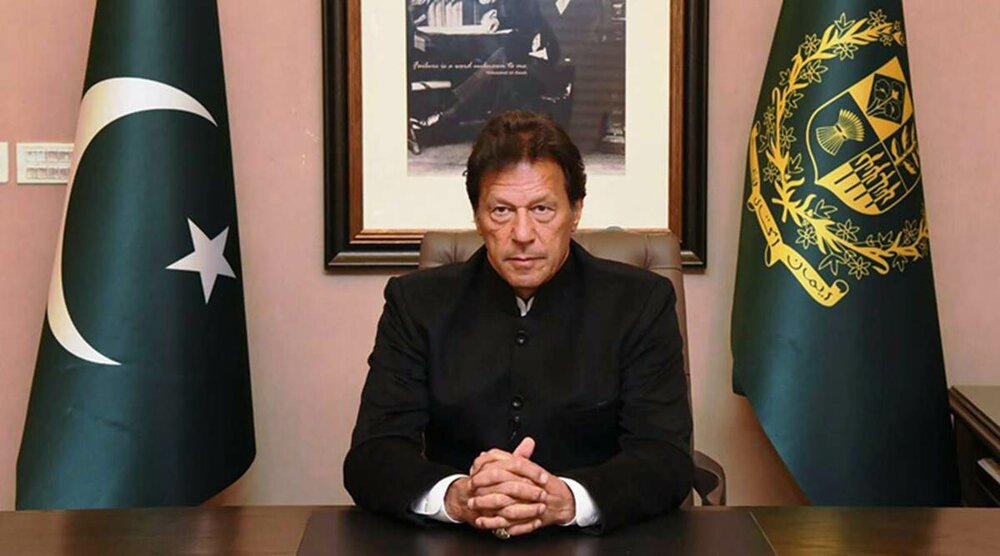STRAIGHT TALK by Hafeez Khan
It was the late eighties. We were flying back to Riyadh from Islamabad after a week in Pakistan. I was accompanied by Abdul Latif Al-Shaikh, Chairman of our business group. We were embarking on a joint venture in the agricultural sector with ADBP through late Jamil Nishtar, its Chairman.
Shaikh Latif is a successful, astute businessman with keen observation. We enjoy a lot of history and a close relation. Recapping our visit, I asked him can you name one factor that is holding back progress in Pakistan? He reflected briefly and somberly replied “management”. A sobering reality. I went quiet for the rest of the flight, he had touched a raw nerve.
After four decades in business, how would I define a good manager? A person capable of receiving instructions; comprehends them, strategizes and executes them. The implementation would be efficient, cost effective; precise to best of ability, and within timelines. Simple, I equate it to the function of lungs in a body.
Management is a much neglected area in Pakistan. It is a key component in organizing any effort. Competent management brings results. The simplest example, rarely followed, is appointing a competent SP in a district. Suddenly the crimes go down and law and order improves.
Even the Almighty leads by example. Night follows the day; sunrise is followed by sunset. Timings are entirely predictable. There is order in the universe. He is the ultimate Manager. We just have to emulate this example to best of our abilities. Success of a nation or entity revolves around the quality of its leader and the managers he surrounds himself with.
New millennium has seen new corporate successes that have overtaken established business leaders. It is through competent leadership and a strong management cadre.
Centuries ago a wise man was asked why do ships sink? He replied “bad weather, massive damage or a poor captain coupled with incompetent sailors”. It holds true even today. Let us have a look at our Pakistani checkered past.
Ayub’s era in Pakistan saw economic progress, despite some democratic constraints. It brought creative changes to the system unleashing entrepreneurial energies. Overall stability laid the basis for an emerging economy. It was viewed enviously by the likes of South Korea, Malaysia and many more. Foundations were laid for a prosperous future. It combined sound leadership backed by competent managers, appropriately delegated.
He was followed by Bhutto pushing a socialist agenda. The nascent foundations by Ayub Khan were demolished easily. The flames of economic growth were extinguished, replaced by disruption of the economic system. With a hotchpotch of inexperienced and incompetent managers, Pakistan suffered a major setback.
He was replaced by Zia who stepped in with a sludge hammer in one hand, and piety in the other. With a dictator only those managers succeed who can suck up, competence took a backseat.The malaise continued into the next decade under Benazir Bhutto and the Sharifs. With benefit of hindsight, we see both parties took turns at promoting personal agendas of consolidating power and self enrichment. Bureaucracy that ran the governments gave up their oath and belief to align with one or the other group. Competence fell by the wayside.
Musharaf was another dictator who started well, seeking reforms. Unfortunately he was so consumed by seeking legitimacy, that he compromised all his principals. His departure brought the same players back, much degraded. There was Zardari, a master manipulator with a one point agenda; greed.
He looked like a pygmy seeing the Sharif’s rush towards the bottom of the pit. We saw the worst plunder by the masters of white collar crime led by Ishaq Dar.
Finally riding a wave of popularity and a rejection of past rulers, Prime Minister Imran Khan emerged as the national leader. He faced a daunting task to retrieve the nation from the brink of disaster. The country was licking its wounds inflicted over decades.
IK led an inexperienced team that needed to beef up its managerial capabilities. There was a huge tide of goodwill globally amongst overseas Pakistanis. They were able and willing to jump in with their expertise and resources. Unfortunately PTI as a party did not have the capacity to absorb this groundswell. IK was sucked in by the more pressing matters at home. His choice for overseas portfolio was unable to rise to the challenge.
There were gaping holes amongst the team selected. He missed out of many professionals around him like MNA Najeeb Haroon. It was the time of smooth talking dream merchants. However IK’s instincts are strong and he is a quick learner. He kept the weeding process going.
Recently he has made appointments to some key positions tapping into the pool of retired army officers. After missing the first round of drawing on overseas Pakistanis, this is another opportunity. They bring the strength of formal training, working under discipline, with wide exposure during their service careers. They need to be appropriately vetted and appointed according to their skill set. This could fill the management void of the government. The key would be clear directions and delegation of authority to achieve the defined objectives.
I continue to believe that Prime Minister Imran Khan’s intentions are for a better Pakistan. Hopefully he will find the strength within this cadre to achieve PTI’s goals. Sadly the management skills amongst our present crop of politicians are lacking.


Leave a Reply